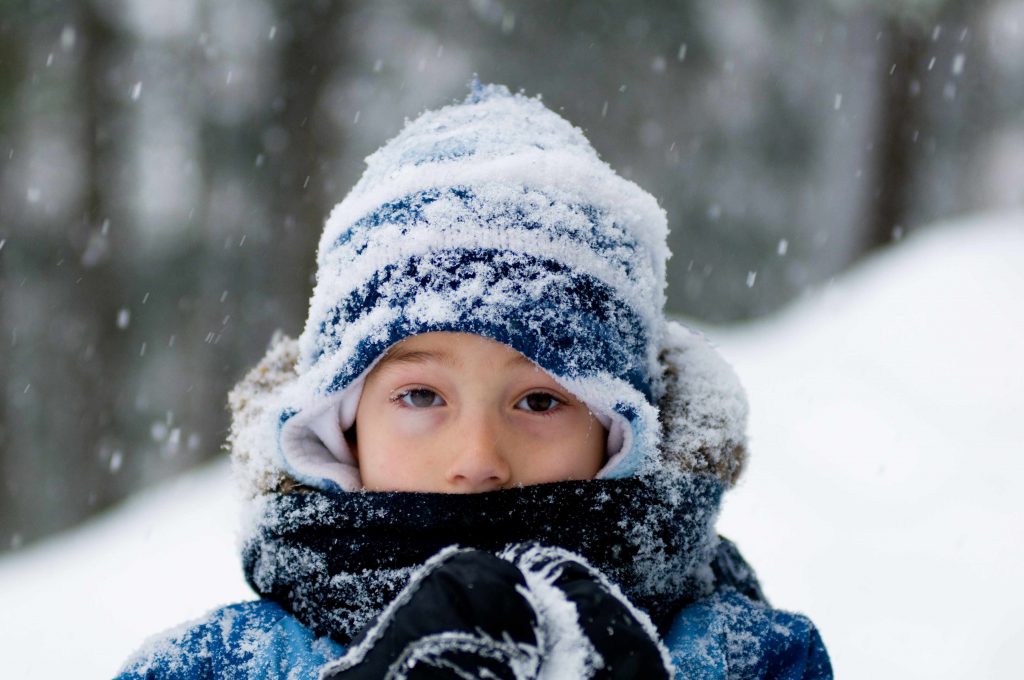-
Mayo Clinic Q and A: Myths about catching a cold

DEAR MAYO CLINIC: My mom always scolded me for not drying my hair after washing it, telling me I'd catch cold. She also talked about dressing right for the weather, starving a fever and lots of other things. I'm wondering if there is any truth in any of these sayings. With COVID-19 still lingering, I'm trying to convince my children, ages 8 and 12, to be more mindful about germs.
ANSWER: While your mom may have warned you that going outside with wet hair will make you sick, the question remains: Does wet hair cause the common cold? The short answer is no.
Colds are caused by viruses, so you can't catch a cold from going outside with wet hair. And wet hair won't make you more attractive to germs.
The same is true with respect to dressing for cold temperatures. While it might be optimal to dress in warmer clothes when it's cold outside, research indicates that cold weather — just like going outside with wet hair — doesn't make you sick.
People often associate going outside with wet hair or being underdressed with getting sick because exposure to germs is often more likely when you go outside. The common cold is transmitted through bodily fluids, such as when people who are sick sneeze, cough or blow their nose. So you have just as much of an opportunity to be exposed to germs indoors, especially when you are in close contact with others.
Other myths I’m often asked about include:
Myth: Vitamin C will help stave off illness.
Fact: Though it has been subject to much research, no definitive body of work says high doses of vitamin C prevent or treat colds.
Myth: Starve a fever; feed a cold.
Fact: While it might be hard to remember the adage, the bottom line is that when you don't feel well, eating may not be on the top of your list. And that is OK. Hydration is more important when you are ill. The best advice is to drink plenty of water or other fluid to stay hydrated, and rest and relax.
Myth: Avoid dairy products if you have a cold because they can produce more mucus.
Fact: Ingesting dairy products will not cause more mucus. Most likely, the texture of certain foods or drinks may coat your throat, which would give the feeling that you have more phlegm. Certain dairy products can be good when you are under the weather, though. Cold ice cream can soothe a sore throat, and probiotics in yogurt can help alleviate stomach upset if you are taking antibiotics for an infection. Check with your primary health care provider or pharmacist to get a list of foods you should avoid with medications.
The best advice I have is to rely on the most common safe behaviors to avoid falling ill:
- Wash your hands.
Clean your hands thoroughly and often with soap and water. If soap and water aren't available, use an alcohol-based hand sanitizer. - Disinfect your space.
Clean kitchen and bathroom countertops with disinfectant, especially when someone in your family has a cold. Be diligent about wiping down doorknobs and frequently touched surfaces. - Use tissues — and masks.
Sneeze and cough into tissues. Discard used tissues right away. Then thoroughly wash your hands. If you are wearing a mask, discard the mask and replace it with a clean one. - Don't share.
Don't share drinking glasses or utensils with other family members. Use your own glass or disposable cups when you or someone else is sick. Label the cup or glass with the name of the person with the cold. - Practice social distancing and safe behaviors, especially if others are ill.
Avoid close contact with anyone who is ill. Consider wearing a mask if you are going to be out in public or around a lot of people in an intimate setting. Since COVID-19 is still a threat, it's important to practice safe behaviors regardless of whether you have been vaccinated for COVID-19. And cold and flu germs are still prevalent. - Take care of yourself.
Eating well, getting exercise and enough sleep, and managing stress might help you avoid getting sick.
You can rest assured that if you go outside with wet hair, or without a jacket, you won't increase your chances of getting sick, but it may cause temporary discomfort. — Dr. Carmen Dargel, Family Medicine, Mayo Clinic Health System, Onalaska, Wisconsin
****************************
Related Articles
- Consumer Health: What is the flu? published 9/22/21
- Cold vs. allergies during COVID-19 pandemic published 5/11/21
- Infectious Diseases A–Z: The common cold versus the flu published 2/11/20






